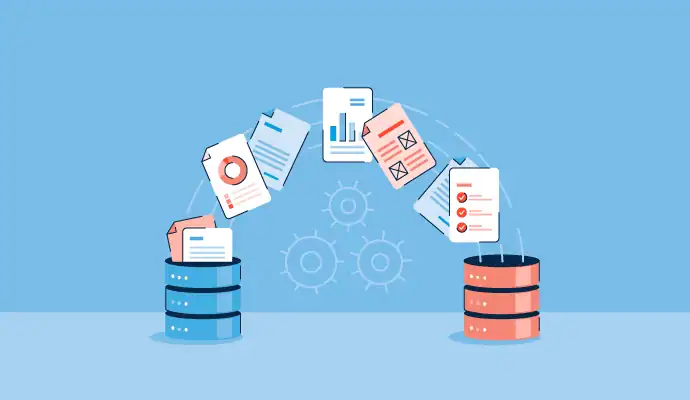As real estate enters a digitally connected era, the demand for seamless, secure, and scalable integration with Multiple Listing Services (MLS) is at an all-time high. Public APIs (Application Programming Interfaces) play a central role in making MLS data more accessible, enabling innovative solutions, and enhancing customer experiences. This article explores the importance of developing public APIs for MLS access and how it intersects with various facets of the modern real estate ecosystem.
Overview
Public APIs are interfaces that allow external software applications to access a system’s data or features. In the context of MLS, they open pathways for third-party developers, platforms, and agents to build innovative services using real-time property data. The evolution of public APIs is pivotal in making MLS platforms more dynamic and integrated with the wider digital economy.
Real Estate Development World
In property development, access to granular MLS data through public APIs allows developers to assess zoning, price trends, and market saturation efficiently. With APIs, large datasets can be parsed for pattern recognition, investment modeling, and risk analysis, cutting research time and increasing project accuracy.
Private Real Estate Networks
While these networks thrive on exclusivity, APIs enable them to selectively share or aggregate MLS data, creating hybrid ecosystems. By developing controlled access through APIs, private networks can offer users a glimpse into curated data without compromising confidentiality.
Remote Real Estate Work
Public APIs support remote agents by enabling mobile-first platforms, integrating with cloud-based CRMs, and automating tasks such as listing updates or client alerts. APIs allow seamless collaboration across time zones and platforms, creating a more agile workforce.
The MLS Concept
MLS is a cooperative database of real estate listings, designed to facilitate information sharing between brokers. By extending its reach through APIs, MLS platforms can serve a broader audience—including home buyers, app developers, and analysts—while maintaining data integrity.
MLS Platforms
MLS platforms like Bright MLS or CoreLogic are integrating public APIs to create more flexible environments. These platforms often expose endpoints for property search, market analytics, and listing status, fueling countless innovations.
Optimizing MLS
Optimization involves structuring APIs for speed, scalability, and security. Developers must use caching, load balancing, and standardized endpoints to ensure robust MLS API performance across thousands of users and requests.
Artificial Intelligence
Public APIs provide the data feed AI models need to learn and predict. AI tools use MLS API data to create smart recommendations, dynamic pricing, and predictive modeling for investment decisions.
AI Matching Buyers with Ideal Neighborhoods
APIs empower AI systems to draw MLS data alongside demographics, school ratings, and lifestyle metrics. The result: personalized matches for buyers based on multi-dimensional data sets accessed via APIs.
Developing Public APIs for MLS Access
Analytics teams use MLS APIs to pull vast datasets for trend analysis, consumer behavior mapping, and price modeling. Real-time access means that these insights are current and actionable, giving agents and investors a competitive edge.

Economic Impact
Open MLS APIs stimulate innovation, lower entry barriers for startups, and increase transparency for consumers. They empower a wave of proptech solutions that create jobs, drive real estate transactions, and contribute to economic growth.
Data Quality Management
APIs must be backed by rigorous data quality protocols. Ensuring the accuracy, completeness, and timeliness of MLS data is critical for downstream applications that rely on API feeds.
Intelligent Listing Alerts Based on Market Movement
APIs can automatically send customized alerts to users based on criteria such as price drops, new listings, or days-on-market thresholds. This automation enhances user engagement and lead nurturing.
Data Security Standards
APIs require strong security protocols, including OAuth2, encryption, and rate limiting. MLS APIs must adhere to industry standards to protect sensitive property and user data.
Personalization Features
Public APIs enable personalized real estate experiences. By accessing user preferences, location history, and engagement patterns, platforms can serve tailored listings and content dynamically.
User Experience Design
The user-facing tools powered by MLS APIs must offer a seamless experience. Developers must consider layout, response time, and intuitive interactions to ensure users benefit from API-driven content.
Usability Testing
Before launching any application using MLS APIs, rigorous usability testing must be conducted. Real users help identify bugs, bottlenecks, or design flaws, ensuring that the application is reliable and user-friendly.
Property Valuation Tools
APIs power home valuation engines by combining MLS data with public records, tax assessments, and sales trends. These tools, when accurate, become compelling lead magnets.
MLS Tools for First-Time Homebuyers
First-time buyers benefit from education portals and budgeting tools powered by MLS APIs. Features like monthly payment estimators, school ratings, and local amenities enhance confidence in purchasing decisions.
Split-Screen MLS Views for Property Comparisons
Applications can use MLS APIs to create side-by-side comparisons of properties, showcasing pricing, features, and value differentials to assist in buyer decision-making.
Cross-Promotion Strategies in MLS
MLS APIs allow integrated promotions across services—mortgage quotes, moving services, or insurance providers—directly within property platforms, increasing value for consumers and partners alike.
Avoiding Legal Trouble When Wholesaling Properties
APIs can flag properties that are wholesale-restricted, help identify non-assignment clauses, and offer legal guidelines, thus minimizing the legal risks for wholesalers.
MLS Leads – Integrating Digital Marketing
By connecting MLS APIs with Facebook Ads, Google Analytics, or email tools, agents can automate marketing efforts. Dynamic property ads can be created based on real-time listing data.
Machine Learning Models
Machine learning applications tap into MLS APIs to analyze buyer trends, detect anomalies, or estimate future values. Continuous data flow from public APIs ensures ongoing learning and model refinement.
Renewable Energy Integration
MLS APIs can highlight homes with solar panels, energy-efficient appliances, or LEED certifications. Eco-conscious buyers can use these filters to find green properties.
Process Improvement
Public APIs eliminate manual entry, speed up data synchronization, and reduce redundancies, significantly improving operational efficiency for brokerages and proptech startups.
Innovation Hubs
Tech incubators and accelerators rely on MLS APIs to prototype apps quickly. By providing access to real-world data, these hubs foster faster product-market fit and innovation.
Review and Reputation Systems
APIs enable integration of agent reviews and ratings into MLS platforms, adding credibility and transparency. Users can filter or prioritize listings based on agent reputation.
Venture Capital Investments
Startups using MLS APIs to build scalable platforms are attractive to VCs. APIs provide flexibility, scalability, and a fast path to MVP, reducing investment risk.
Business Model Innovation
MLS APIs facilitate subscription services, data-as-a-service models, and value-added integrations like smart home monitoring or AR-based walkthroughs, creating new revenue streams.
Market Trend Predictive Modeling
Developers use MLS API feeds for predictive modeling to forecast pricing trends, buyer activity, and demand spikes. These insights guide strategy and investment decisions.
Operational Efficiency Solutions
Automated workflows built on MLS API triggers (e.g., auto-update when listing status changes) reduce manual labor and ensure real-time accuracy across platforms.
Professional Development
Agents and developers alike need continuous education on using public APIs effectively. This includes API documentation literacy, security best practices, and market application.
Frequently Asked Questions
What is a public MLS API?
It’s an interface that allows external systems to access MLS data in a secure, standardized format.
Why are MLS APIs important?
They support integration with CRMs, mobile apps, websites, and marketing platforms, enhancing productivity and innovation.
Are there standards for MLS APIs?
Yes, RESO provides data standards that MLS APIs often follow for compatibility and consistency.
Is MLS data safe to use in public APIs?
When secured with modern encryption and access controls, yes. APIs must adhere to strict security protocols.
Can any developer access MLS APIs?
Access is typically granted to licensed professionals or approved partners. Some APIs are public, others require contracts.
The development of public APIs for MLS access represents a major advancement in real estate technology. These APIs unlock data for a host of new applications, enabling smarter workflows, personalized user experiences, and scalable innovations. As real estate continues to digitize, MLS APIs will be foundational in driving connectivity, transparency, and growth across the industry. Investing in robust API infrastructure and developer education is no longer optional—it’s essential for staying competitive in the new digital real estate landscape.













